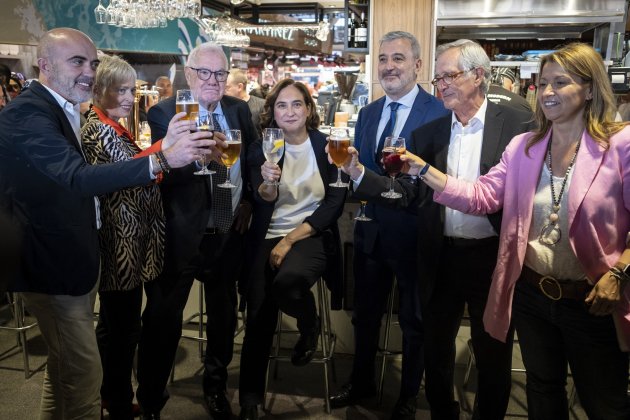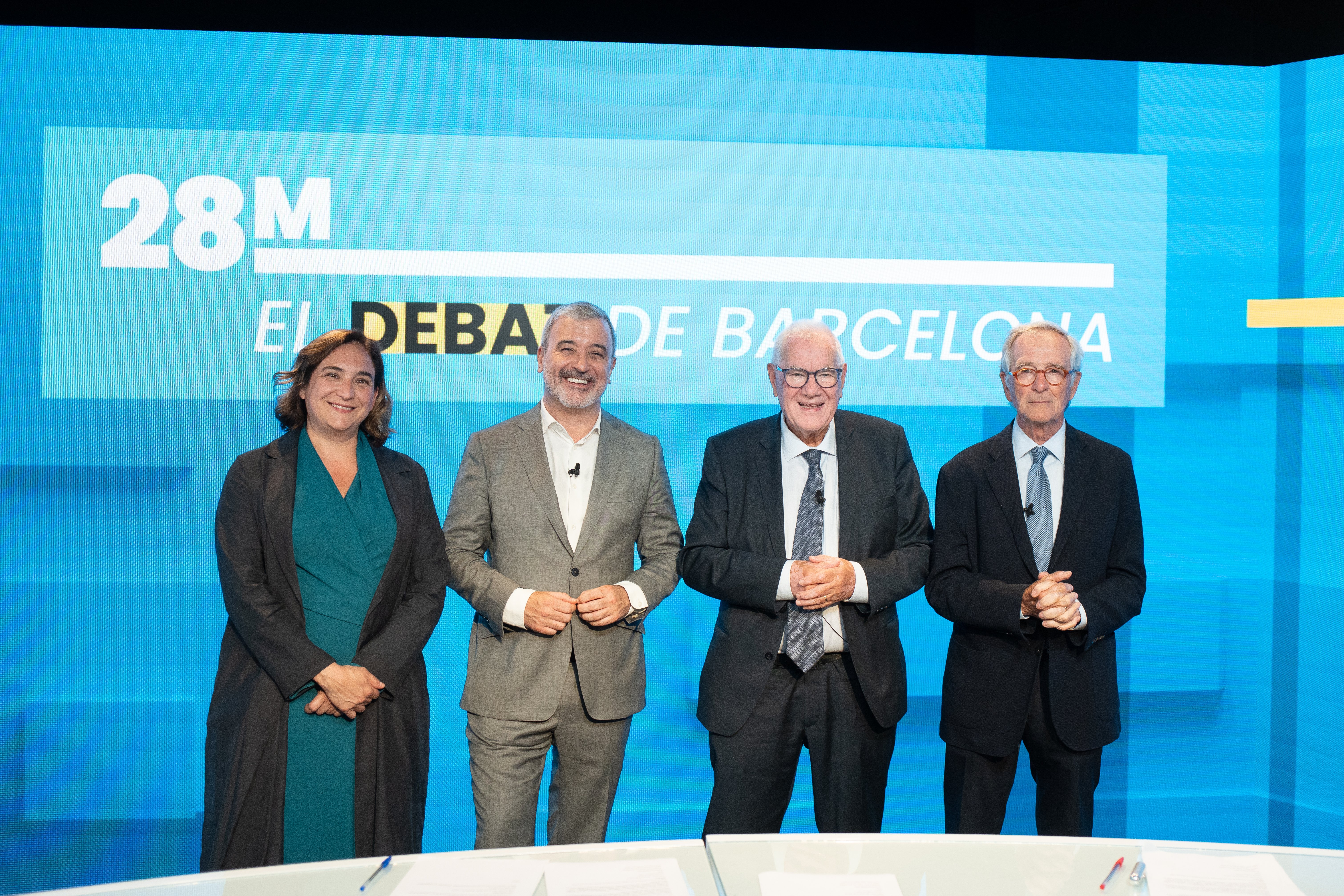From this Friday, Ada Colau i Ballano (Barcelona, 1974), mayor of Barcelona since 2015, faces her third electoral campaign as a candidate for Barcelona en Comú (BComú), with the unknown of whether she will be able to retain the position which he achieved eight years ago by a narrow victory and renewed in 2019 thanks to an alternative majority made possible by Manuel Valls, with the difference that this 2023 the battle of Barcelona is more contested than ever, with four main candidates for the starting line for the 2023 municipal elections and a "poll of polls" that shows a three-way tie, although the latest CIS survey, released on Thursday, gives the advantage to the sitting mayor. All this leads to a multiplicity of pact combinations that open up many options for the composition of the new municipal government that will govern the capital of Catalonia until 2027.
For his part, Xavier Trias i Vidal de Llobatera (Barcelona, 1946) arrives at the electoral campaign as the main favourite to unseat the current mayoress. After governing the city for one term, from 2011 to 2015, he lost the elections to Colau and is now preparing for revenge, thanks to the position of favourite he has been placed in by many polls and the construction of a candidacy that goes beyond his own party, Together forCatalonia (Junts), to bring together other political sensibilities under the umbrella of Trias for Barcelona to lead a change after eight years of Colauism.
Above, Evolution of the poll results in % of votes for candidatures in the Barcelona municipal elections.
The third contender is Jaume Collboni i Cuadrado (Barcelona, 1969), the candidate of the Catalan Socialist Party (PSC), who is running for mayor for the third time with the difference that, this time, he does have a chance - according to some polls - of winning the elections. In this last mandate, Collboni has been part of the municipal government as first deputy mayor, but in January, he surprisingly decided to leave in order to prepare for the elections, and since then he has become one of the biggest critics of a municipal government of which his party is still a part, even if it doesn't seem like it.
Above, Evolution of the averaged % of poll results for each candidature in the Barcelona municipal elections. The broken line indicates the minimum 5% vote to obtain representation on the council.
As for Ernest Maragall i Mira (Barcelona, 1943), candidate of the Republican Left of Catalonia (ERC) and winner of the 2019 municipal elections, his prospects for victory have cooled in recent months. Since Xavier Trias decided to present his candidacy, Maragall has fallen in the polls, and currently most of the opinion surveys place the Republican candidate in fourth position, despite the fact that no-one is assuming anything before it all starts. The candidate himself is confident of his chances to win the elections and lead a new left-wing government in the capital of Catalonia.
The electoral scenario is completed by Daniel Sirera Bellés (Barcelona, 1967), historical member of the People's Party who is running in the elections in place of Josep Bou, independent candidate in 2019 who has often acted on the margins of the party during his term as a councillor. At the moment, the polls predcit that the PP will maintain its presence on the city council and could even increase it, since it would be the only beneficiary of the fragmentation of unionism in Barcelona which is reflected in the poor options or retaining council seats of the candidates Anna Grau i Àrias (Girona, 1967) for Ciudadanos and Eva Parera i Escrichs (Barcelona, 1973) for Valents. On the other hand, Basharat Changuerra i Canalejo (Barcelona, 1984), better known as Basha Changue, aims for the CUP to once again achieve a presence on the Barcelona City Council.
Possible electoral pacts
Faced with such an open scenario, and the possibility that the winner, whoever he or she is, will not obtain any clear advantage over the rivals - an absolute majority for any one list is totally ruled out - the prospects for post-election deals become important. It should be borne in mind that from the resumption of democracy at municipal level in 1979, and until 2015, the candidate with the most votes had always governed, but in 2019, Manuel Valls's support for Ada Colau, with the complicity of Jaume Collboni, broke the tradition, and although the system for electing mayors always favours the candidate who wins most votes, in 2023 the situation of four years ago could be repeated.

It should be borne in mind that the system of investing a new mayor favours the candidate with the most votes unless an alternative majority is found that will have an absolute majority of council votes in the first and only votation. This is a notable difference with the investiture system in the Parliament of Catalonia and the Spanish Congress, which provides for two votes, a first where an absolute majority is necessary and a second where a simple majority is accepted. With a municipal plenum made up of 41 councillors, the absolute majority stands at 21, a figure that may be within the reach of various combinations, but which will not be clarified until the end of the scrutiny on election night, May 28th.
In this context, the start of the electoral campaign marks the start of two weeks of confrontation of ideas and manifestos, but also of searching for points of connection and complicity to weave majorities or prevent others from doing so. In this sense, Trias has shown himself willing to reach accords with anyone except Colau, and Collboni has not closed the door to what could be referred as a sociovergent pact, that is, with Trias, while the current mayor defends the articulation of a new left-wing government and Maragall warns of a pact between Junts and PSC with Sirera playing the role that Manuel Valls was delighted to take on four years ago. All in all, as many possibilities as questions - to which must be added the future of Colau if she does not win back her position. And without losing sight of the fact that at the end of the year there is a Spanish general election - which means that, this time, the battle of Barcelona is more decisive than never and Colau's future is completely up in the air.

